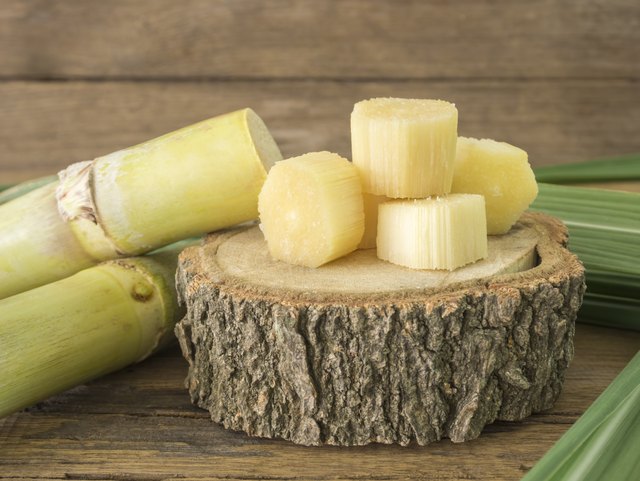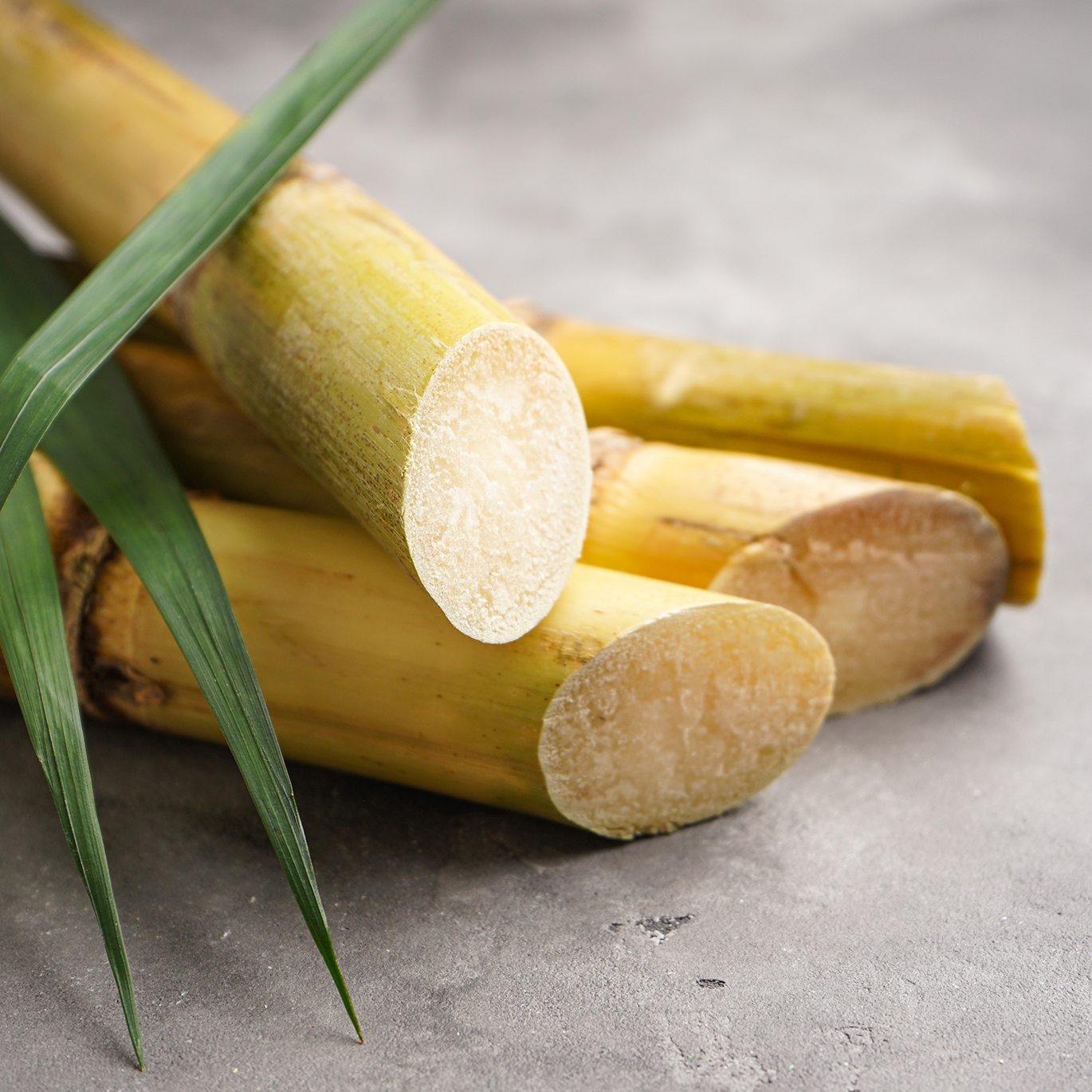The Role of Sugar and Cane in Creating Flavored Syrups and Sweeteners
The Role of Sugar and Cane in Creating Flavored Syrups and Sweeteners
Blog Article
Why Cane Sugar Processing Chemicals Are Vital for Modern Sugar Refining
The function of walking cane sugar processing chemicals in contemporary sugar refining can not be overstated, as they are essential to enhancing both the performance of extraction and the total quality of the last item. Representatives such as phosphoric acid and particular flocculants are utilized to eliminate impurities, resulting in sugar that not just satisfies consumer assumptions however additionally abides by market criteria. The implications of these chemicals expand beyond high quality, touching upon market dynamics and ecological considerations. sugar and cane. This raises important questions about the sustainability of such techniques and their effect on the future of sugar manufacturing.
Duty of Processing Chemicals
The effectiveness of walking cane sugar handling hinges considerably on the calculated application of processing chemicals. These chemicals play a crucial function in improving the efficiency and top quality of sugar extraction and refining. From the first stages of juice extraction to the final purification actions, processing chemicals assist in various crucial procedures.
In the extraction stage, chemicals such as phosphoric acid and calcium hydroxide are utilized to enhance the information process, aiding to get rid of impurities and put on hold solids from the cane juice. This not only improves the yield however also ensures the clarity of the final item. In addition, representatives like flocculants help in the quick settling of pollutants, therefore simplifying the total procedure.
As the handling advancements, chemicals are made use of in decolorization and formation stages. Turned on carbon and ion exchange resins offer to remove color and smell, guaranteeing that the refined sugar satisfies customer quality requirements. Ultimately, the role of processing chemicals expands past functional efficiency; they substantially impact the sensory attributes of the end product, adding to market competitiveness. Therefore, the meticulous option and application of these chemicals are vital for accomplishing ideal results in walking stick sugar processing.
Trick Kinds Of Chemicals
Cane sugar handling relies upon a range of essential chemicals that assist in each stage of production. These chemicals play important duties in clearing up, lightening, and purifying the sugar drawn out from cane.
One primary classification of chemicals consists of flocculants, such as polyacrylamide, which help in the clarification procedure by advertising the gathering and settling of pollutants. Furthermore, calcium hydroxide is typically used to neutralize acidity and help in the removal of non-sugar parts.
Lightening representatives, such as activated carbon and sulfur dioxide, are used to decolorize the syrup, causing a more clear end product. These chemicals assist get rid of shade substances that might influence the sugar's appearance and bankability.
In addition, phosphoric acid serves as a pH regulator throughout the processing stages, ensuring optimal conditions for the enzymatic tasks involved in sugar extraction and purification.
Various other important agents consist of edta (ethylenediaminetetraacetic acid), which chelates steel ions that can militarize unfavorable responses, and sodium hydroxide, which assists in pH control throughout the refining process. Jointly, these chemicals enhance performance and guarantee a high-grade walking stick sugar item.
Benefits for Sugar High Quality
Often ignored, using details handling chemicals dramatically enhances the overall high quality of walking cane sugar. These chemicals play a crucial duty in refining processes, making sure that the last item satisfies strict read here sector standards for pureness and taste.
:strip_icc()/How-to-Plant-and-Grow-Sugar-Cane-965303384-2fdac181359d44c185dfa7988fc181a8.jpg)
In addition, refining chemicals assist in accomplishing a constant granulation and structure, which are critical for customer approval. By regulating the condensation procedure, these chemicals make certain that the sugar crystals form evenly, leading to a more attractive product that liquifies well in different applications.
In addition, the use of these chemicals can boost the shelf life of cane sugar by decreasing moisture absorption and microbial development. In general, the strategic application of processing chemicals is vital for delivering high-quality walking cane sugar that meets consumer assumptions and industry demands.
Environmental Impact Factors To Consider

Additionally, the energy-intensive nature of sugar refining, compounded by here are the findings chemical use, often results in enhanced carbon discharges. This adds to environment adjustment and elevates problems regarding the sustainability of current refining techniques. Furthermore, the sourcing of these chemicals may include practices that threaten biodiversity, such as monoculture farming, which lowers the strength of farming ecological communities.

To mitigate these influences, sugar refiners are progressively checking out sustainable choices and embracing finest methods that lessen chemical usage. Implementing strenuous ecological management systems can help guarantee that the refining procedure straightens with environmental standards and advertises biodiversity. Inevitably, a well balanced technique that prioritizes both sugar top quality and ecological stewardship is vital for the long-lasting practicality of the sugar industry.
Future Fads in Refining
As the sugar industry grapples with the ecological difficulties connected with traditional refining techniques, innovative strategies are arising to improve both efficiency and sustainability. One considerable trend is the fostering of eco-friendly chemistry principles, which prioritize making use of non-toxic, biodegradable handling chemicals. This shift not just decreases environmental influence but likewise addresses customer need for cleaner production methods.
One more encouraging development is the execution of sophisticated purification technologies, such as membrane layer splitting up and adsorption procedures. These methods boost the clarity and high quality of the sugar while minimizing the quantity of wastewater generated during refining. In addition, the integration of electronic innovations, consisting of IoT and AI, is transforming operational effectiveness by making it possible for real-time monitoring and anticipating upkeep, thus lessening source waste.
Additionally, making use of spin-offs from sugar refining, such as bagasse and molasses, is obtaining traction. These materials can be exchanged biofuels or value-added items, contributing to a round economic climate within the sector. Collectively, these patterns signal a shift in the direction of more sustainable methods that not just improve operational efficiency but also line up with international sustainability objectives, guaranteeing the future feasibility of sugar refining.
Final Thought
Walking stick sugar handling chemicals are crucial in contemporary sugar refining, dramatically enhancing the performance and top quality of sugar removal. The calculated use these chemicals not just enhances the purity and flavor of the final product however additionally makes certain regular formation and appearance. As the industry significantly prioritizes sustainability, the adoption of environmentally-friendly handling representatives is likely to shape future patterns great site in refining, eventually causing higher top quality products and extended service life for customers.

Inevitably, a well balanced method that focuses on both sugar top quality and environmental stewardship is necessary for the lasting practicality of the sugar market.
Walking cane sugar processing chemicals are necessary in modern sugar refining, substantially enhancing the effectiveness and quality of sugar removal.
Report this page